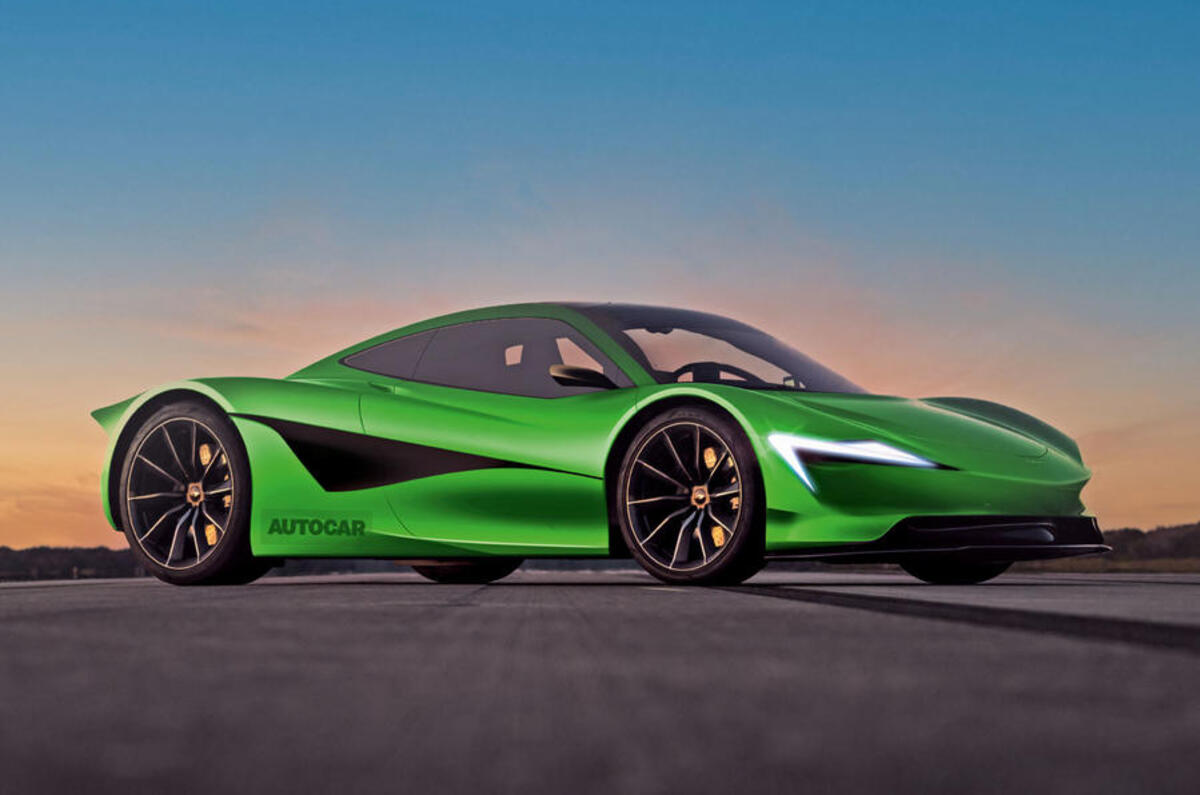"There will be no BEV supercar before McLaren does it" but much more research and development is needed before such a model is technically and commercially viable, the firm's CEO, Michael Leiters, has said.
Speaking to Autocar on the sidelines of this year's Society of Motor Manufacturers and Traders Summit, Leiters called for substantial investment into – and support for – the UK automotive supply chain, particularly with a view to sustaining low-volume manufacturers and facilitating their adoption of new powertrain technologies.
In a speech at the event, Leiters called for "a clear industrial strategy, led by investment in the domestic supply chain", which he said "will deliver growth, support jobs, help decarbonise the economy and secure a vibrant future for the UK performance car industry" as it electrifies.
He later told Autocar he is "really concerned" about the structure of the supply chain for those UK-based low-volume manufacturers, citing the obstacles presented by trade restrictions and government initiatives as inhibitive to technical progress.
"We are in a sourcing programme for a battery for a new plug-in car," he revealed as an example, "and it's very difficult to find a supplier who can fulfil the 'rules of origin' to avoid tariffs.
"The supply chain is not ready and we need much more investment in the supply chain to catch up with others."
However, the ex-Porsche and Ferrari engineering boss said that while the industry is confronting various headwinds, there is a "golden opportunity to focus on high-performance cars, because we have proven in the past that investing in high-performance technologies will later on enable you to scale them for higher volumes.
"We are working with huge suppliers – recognised as innovators – and they come to us for 3000 units. And they tell us: 'We are working together with you because you are asking us for stuff the others will ask us for in three to five years.'"
He hailed the UK as "the home of high performance", highlighting that most Formula 1 teams – as well as various global sports car manufacturers – have their headquarters in the country.
"I think there's a big, big opportunity for us," he said.
He added that supporting the supply chain is not solely about government investment, but in fostering programmes that help the industry "understand the technology".
"We have to understand the cell - the cell technology, the mix of materials, how to manufacture cells..." he said. "It's a lot of work. It's science.
"We have to start with R&D, then come to engineering and then come to industrialisation. It's a long way to go, and it's not like we are at the same starting point: China has a geopolitical agenda to do that, and we are only catching up."
Leiters said McLaren has "started an engineering programme to define" its first EV, but current battery technology would not allow it to achieve its lofty performance and dynamic objectives, hence the need for further R&D.
"We have to stay with our core brand, with our DNA," he said. "This is supercars and lightweight, and today this is something which is not available [with an electric powertrain] and it will need some time to develop this technology."
He said "it's not a supercar if it weighs two tonnes and has 2000 horsepower", reaffirming his commitment to achieve a similar kerb weight to today's V6- and V8-powered McLaren models, to ensure that it is "nimble on the street" and "has that perfect McLaren feeling".
McLaren's core customer base is "sceptical" about the prospect of an EV supercar, he acknowledged, which is why it's especially important that the Woking firm's take on the formula is "convincing - and that means lightweight, and credible to the brand".
Leiters also suggested that beyond the technical complexities of producing an electric follow-up to the likes of the 750S and Artura, there is the "commercial" concern around residual values.
"Our customers are quite wealthy," he said, "but they don't want to lose money. Residual values are crucial in this business and we have seen that residual values for BEVs are very critical and developing."
Bolstering the supply chain and fostering EV R&D projects in the UK is particularly crucial for McLaren, because the company remains fiercely committed to building its supercars in Woking. The prospect of foreign production is "not on the table", Leiters said, citing the company's "very specific skill requirements", which are well catered to by its Surrey workforce.
Meanwhile, McLaren is investing in a new V8 hybrid powertrain – developed in partnership with engineering firm Ricardo and due to be rolled out across the McLaren line-up – as Leiters envisions 90% of the firm's sales will be hybrid in the next three to five years.
On the subject of McLaren's long-mooted SUV, conversely, he said current-generation battery technology could fit such a car's more "lifestyle"-oriented use case, but the firm still has not decided whether it would be electric or plug-in hybrid.
A "shared-performance" vehicle – as he refers to it – would help to "de-risk" McLaren's business by providing it with a more volume-friendly proposition, but the company is still working to answer the question: "what does a customer want" in this segment?
In order to achieve economies of scale and minimise its capital expenditure, McLaren could look to base any SUV model on a platform supplied by another manufacturer, but Leiters did not name any potential candidates.








Join the debate
Add your comment
Marvellous as it is to have cars like this, they aren't really road cars,they're Track day or runway Bunnies,and with the speed they can do and ultra quickly gain speed, are the drivers able to cope with it?